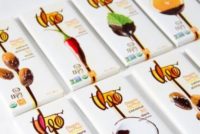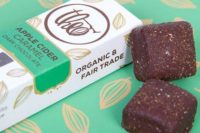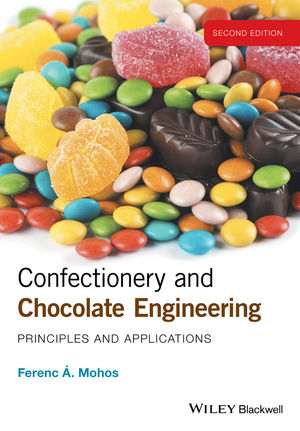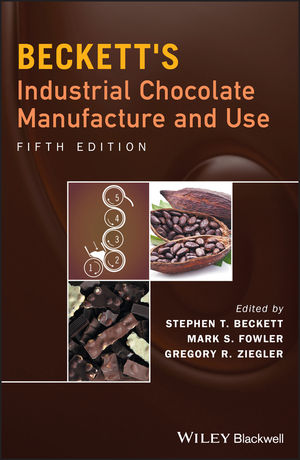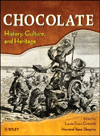
|
| Joe Whinney looks at cocoa beans with actor and director Ben Affleck in Congo. Photo by Piet Suess. |
Joseph Whinney was among the first in the business to mass produce Fair Trade cocoa.
The founder and ceo of Theo Chocolate could envision what few others had the foresight to imagine — enlightened consumers. Moreover, it only takes a few minutes of conversation with Whinney to reveal his deep commitment to sourcing cacao sustainably from origin.
Which is probably why Ben Affleck wanted to work with him.
Affleck may be known for his roles on screen, but it’s his work in the war-ravaged Congo, and his organization the Eastern Congo Initiative (ECI) that Whinney cares about.
The actor and director first visited Whinney and Theo about two years ago after learning about the work the chocolate company was doing with cocoa farmers.
At the time, Whinney had never even been to Congo.
“I was really impressed with his passion for creating change there,” Whinney recalls. “I thought it was a great opportunity. So, in about 18 months, we went from my first visit to actually being able to export my first container of cocoa from there.”
Together, they launched Theo Congo Bars, the first-ever chocolate bars made from 100 percent Congolese cocoa. They come in two dark chocolate flavors: Pili Pili chili an intensely warming blend of cocoa, vanilla and spicy pili pili peppers; and Vanilla Nib, a scrumptious mix of cocoa, creamy vanilla and crunchy cocoa nibs.
“The [Congolese] farmers are so thirsty for opportunity and so aggressive for creating changes in their own lives,” Whinney says. “The quality [of the cocoa] is excellent. We knew that we had a winner on our hands.”
Initially, Theo agreed to buy 200 tons of beans from the first harvest, but has already raised that purchase amount twice as the crop developed, up to 340 tons. And the beans are slated to be used in more Theo products moving forward.
For example, this Mother’s Day, Theo is planning to release a line that draws attention to the problems women and girls in Congo face.
“Part of what we’re hoping to do is highlight specific seasonal opportunities to bring attention to specific problems,” Whinney said.
Whinney says working with Affleck and ECI has been great.
“It’s been a really positive relationship,” he says. “The attention [Affleck’s] been able to bring to this has been really powerful. But in this day in age, the media has been really diversified. We still have a lot of work to do to tell that story.”
Overall though, the Fair Trade chocolate segment is growing, and Theo has been one of the main benefactors of that growth, Whinney says.
“It’s only been an upside for us,” he explains. “It’s drawing more consumers to the shelf.”
The segment still isn’t as strong as some other Fair Trade products though, such as coffee.
“Chocolate is a much more confusing story to many consumers today than coffee was,” Whinney says. “When I was growing up, I knew what a coffee farmer looked like... Juan Valdez. Most consumers today still don’t know where cocoa is grown.”
Whinney is relentless in his quest to get the word out though. He’s been to the Congo nine times in the last two years. And he’s also recently redesigned his Classic line.
The new packaging features universal, bright background colors, which creates a billboard effect when the bars are lined up on the shelves. And the various ingredients are highlighted on each bar.
“We continue to go into new markets where consumers don’t know us,” he explains. “It’s a wonderful, delicious, totally accessible line and that rebranding refreshes the product line.”
Marketing is only half the battle though.
“Consumers aren’t buying chocolate because it’s Fair Trade. They’re buying chocolate because they want to treat themselves,” Whinney acknowledges. “Having the ingredients and the quality of the product is the most important thing. And then Fair Trade is the secondary message.”
Of course, for Whinney, giving cocoa farmers an honest wage is the most important thing he does.
“The Congo work is really important because we’re having such a broad impact on farmers there. It’s the kind of success story that we really build the business to create,” he says. “Overall, things are really great. It’s a lot of hard work. It is challenging when you spend a lot of time in origin countries. But when people start paying attention, it makes it all worthwhile.”





